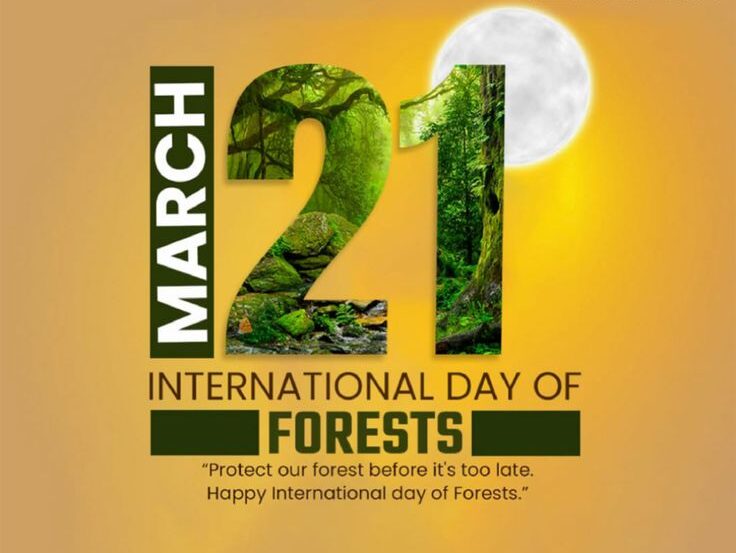10 Amazing Facts About the International Day of Forests That Show Why Forests Matter
The International Day of Forests, celebrated annually on March 21, highlights the vital role forests play in sustaining life on Earth. Proclaimed by the United Nations General Assembly, this day raises awareness about the significance of forests and promotes actions to protect and sustain them.
What is the International Day of Forests?
The International Day of Forests is a global celebration dedicated to recognizing the ecological, economic, and cultural value of forests. Each year, it focuses on a specific theme to address pressing issues related to forest conservation and sustainable management.
History of the International Day of Forests
- 2012: The United Nations General Assembly officially declared March 21 as the International Day of Forests.
- First Celebration: The inaugural celebration took place in 2013, emphasizing sustainable forestry practices.
- Annual Themes: Themes such as “Forests and Energy” and “Forest Restoration: A Path to Recovery and Well-being” highlight diverse aspects of forestry.
- Global Impact: This initiative has brought together governments, NGOs, and communities to promote forest preservation.
Daily Life Impacts of Forests
Forests are indispensable for human survival, and their impact on daily life is profound:
- Clean Air: Forests absorb carbon dioxide and produce oxygen, acting as the planet’s lungs.
- Water Cycle: Forests play a crucial role in regulating rainfall and maintaining freshwater supplies.
- Livelihoods: Over 1.6 billion people depend on forests for their livelihoods.
- Biodiversity: Forests are home to 80% of terrestrial species, supporting ecological balance.
- Climate Regulation: They help combat climate change by sequestering carbon and cooling the planet.
How is the International Day of Forests Observed?
Communities and organizations worldwide engage in activities to honor forests:
- Tree-Planting Campaigns: A popular way to contribute to reforestation efforts.
- Educational Events: Schools and NGOs host workshops, seminars, and exhibitions to spread awareness.
- Forest Cleanups: Volunteer groups organize cleanup drives to reduce pollution in forested areas.
- Social Media Advocacy: People share posts using hashtags like #InternationalDayOfForests to spread the message.
- Policy Initiatives: Governments often announce new policies or programs for forest conservation.
10 Amazing Facts About Forests
- Global Forest Cover: Forests account for 31% of the Earth’s land area, spanning over 4 billion hectares.
- Economic Contribution: The global forestry sector provides over 33 million jobs worldwide.
- Carbon Storage: Forests store about 662 billion tons of carbon, helping mitigate climate change.
- Medicinal Benefits: Nearly 25% of modern medicines are derived from forest plants.
- Biodiversity Hotspots: The Amazon Rainforest alone is home to 10% of all known species.
- Urban Benefits: Urban forests and parks reduce city temperatures by up to 7°C, improving living conditions.
- Tree Lifespan: Some trees, like the Bristlecone pine, can live for over 5,000 years.
- Water Sources: Forested catchments provide drinking water to 75% of the global population.
- Cultural Significance: Forests are central to many indigenous cultures and traditions.
- Reforestation Potential: Reforesting 350 million hectares could sequester 1 gigaton of CO2 annually.
FAQs About the International Day of Forests
Q1: Why is forest conservation important?
A: Forests are vital for maintaining biodiversity, regulating the climate, and providing resources like clean air, water, and food.
Q2: What can individuals do to protect forests?
A: Participate in tree-planting drives, reduce paper usage, support sustainable products, and raise awareness.
Q3: How do forests help combat climate change?
A: Forests act as carbon sinks, absorbing CO2 from the atmosphere and reducing the greenhouse effect.
Significance of the International Day of Forests
- Ecological Importance: Forests sustain life on Earth by supporting biodiversity and regulating ecosystems.
- Economic Value: They contribute significantly to global economies through timber, tourism, and non-timber products.
- Cultural Heritage: Forests hold spiritual and cultural significance for indigenous communities worldwide.
- Health Benefits: Spending time in forests boosts mental health and reduces stress.
Wishing and Spreading Awareness
Share these thoughtful messages to honor forests:
- “Happy International Day of Forests! Let’s cherish and protect the green lungs of our planet.”
- “Every tree counts. This Forest Day, plant a tree and nurture our future!”
- “Forests are life. Let’s safeguard them for generations to come.”
Conclusion
The International Day of Forests is a reminder of our responsibility to protect and preserve these invaluable ecosystems. Forests provide clean air, water, biodiversity, and cultural significance, making them essential to human well-being and the planet’s health. This March 21, take a step toward conservation—plant a tree, spread awareness, or support sustainable practices. Together, we can ensure a greener, healthier future.











I am no longer sure where you are getting your information, however good topic. I needs to spend a while studying much more or working out more. Thanks for excellent information I used to be looking for this info for my mission.
The site makes it possible to connect with specialists for one-time high-risk missions.
Clients may quickly arrange support for unique situations.
Each professional have expertise in executing intense activities.
hitman-assassin-killer.com
The website guarantees secure arrangements between requesters and specialists.
Whether you need a quick solution, this website is the right choice.
List your task and match with an expert now!